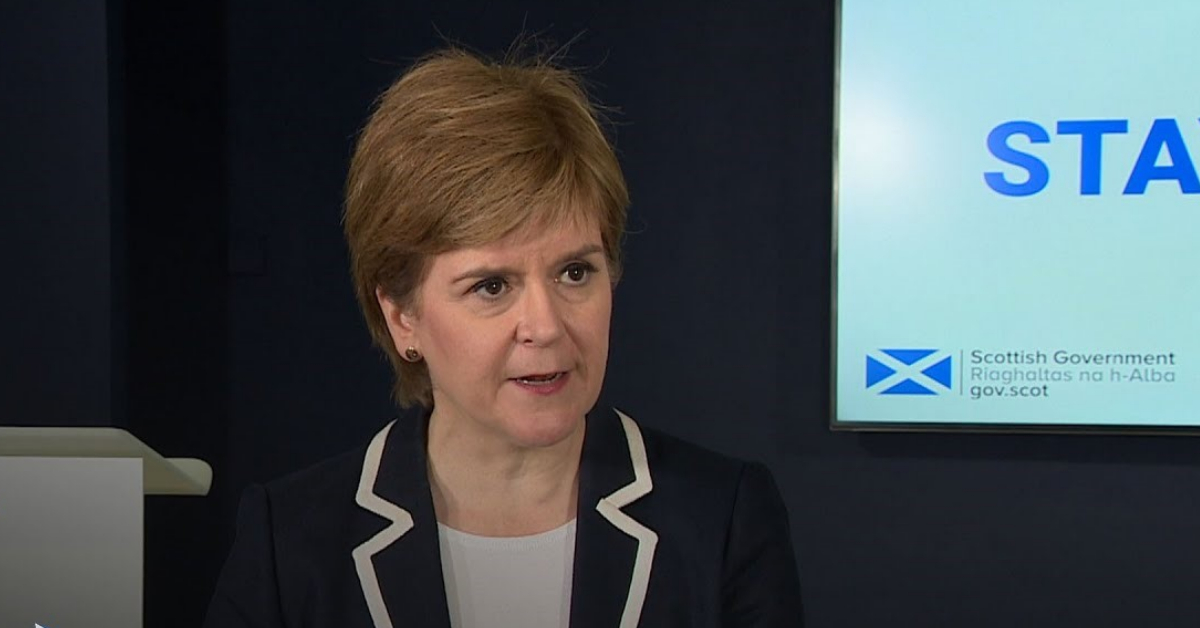First Minister Nicola Sturgeon held a coronavirus briefing on Monday after six cases of the Omicron variant were identified in Scotland.
Four cases are in the Lanarkshire area and two have been identified in the Greater Glasgow and Clyde area.
- Speaking at the briefing, the FM said that the overall Covid situation is stable with cases declining slightly.
- She added there is still a lot we do not know about the Omicron variant, but that early indications from South Africa suggest it may be more transmissible than the dominant Delta variant.
- There is currently no information that the symptoms are any different or that the disease caused by the variant is more severe.
- Sturgeon said the situation should be treated “seriously”, adding it is the “most challenging development in the course of the pandemic” for some time.
Contact tracing is ongoing for the six people who have tested positive for the Omicron variant in Scotland.
However, not all of the patients have recent travel history or links with others who have travelled to countries in southern Africa, where the variant was first detected last week.
The FM said: “This suggests that there might already be some community transmission of this variant in Scotland, but there is no evidence yet that this is sustained nor any evidence that it is widespread at this stage.”
Sturgeon called for Scots to “step up” their baseline mitigations, including:
- Face coverings.
- Hand washing / sanitising.
- Testing regularly with lateral flow devices.
- Testing before socialising with others.
- Working from home where possible.
Sturgeon and Wales’ First Minister, Mark Drakeford, have called for urgent talks with the Prime Minister over the Omicron variant.
In a letter to Boris Johnson, they have called for tougher travel restrictions and confirmation of funding to respond to the situation.
At the briefing, Sturgeon explained that the proposed change would see people arriving in the UK from overseas being asked to self-isolate for a period of eight days.
They would then take a PCR test on day eight after their arrival, as well as on day two.
She said: “We believe this measure would be more effective in identifying cases of this variant, which result from overseas travel and therefore help us prevent further community transmission from imported cases.”
Follow STV News on WhatsApp
Scan the QR code on your mobile device for all the latest news from around the country


 STV News
STV News
























